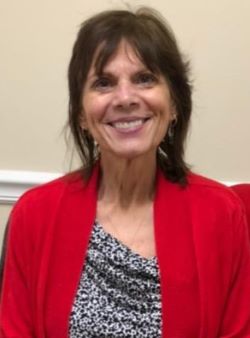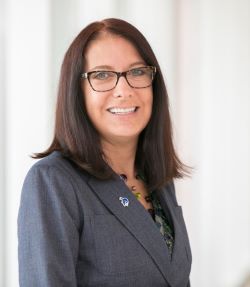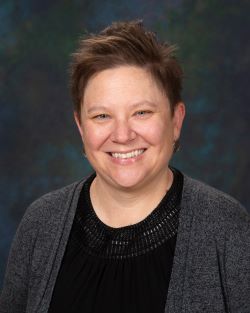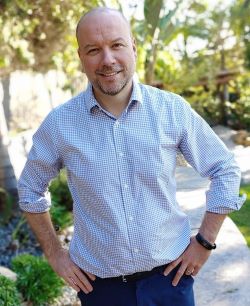Josephine Coleman-Williams, LCSW

A nonprofit in Liberty County, Ga., is helping local veterans experiencing homelessness by creating a tiny-home community in Midway, Ga. According to an article at WTOC, a lot in Midway will soon be a place for many veterans who need a home, say leaders with BuddyWatch Inc., which aims to help veterans near Fort Stewart.
“When we say to our soldiers, ‘Thank you for your service,’ that’s not enough,” says NASW Georgia Chapter member Josephine Coleman-Williams, with BuddyWatch. “We can do better by serving them. We serve them by providing them places to live and opportunities to grow.”
Coleman-Williams, LCSW, says she also plans to offer her counseling services to tenants on-site once the homes are built.
“I have been in the business of mental health care for over 20 years. In that capacity, I’ve worked with a lot of veterans,” she says. “One of the things I think that helps veterans heal is to get outside of their own heads and help other veterans.”
Dawn Apgar, PhD

A social work degree can unlock doors to many different careers geared toward helping others, says NASW New Jersey member Dawn Apgar, PhD, a nationally recognized leader in the profession.
“Some social workers work in small systems, and others in larger ones,” she says in an article posted at Seton Hall University’s News and Events website. “I started my career working with individuals living with disabilities in a group home, where I fought for de-institutionalization and for helping people with disabilities live in their community.”
Apgar is an associate professor in the Department of Sociology, Anthropology, Criminal Justice and Social Work at Seton Hall University.
“I’m doing what I do best: using data to ask difficult questions,” she says in the story. “Are we preparing social workers to do the advocacy work called for by our code of ethics? Is our educational system preparing people properly? I am focused on reshaping the practice, regulation and education of social work.”
Amanda Greubel

Being trans is not a mental illness, a “phase,” or a bid for attention. It is an inborn state like left-handedness, says a letter to the editor published in The Observer newspaper in DeWitt, Iowa.
The writer is NASW Iowa Chapter member Amanda Greubel, who wrote in opposition to the state House of Representatives bill, HF 180. It aims for schools to not take any steps to affirm the gender identity of a student without written permission from that child’s parents or guardians. This bill only applies to students who are transgender.
Schools could not allow these students to use the name, pronouns, or bathroom that correspond to their identity. School staff could not assist students who are struggling with gender identity issues and come to them for help.
“As a social worker and a parent myself, I understand the importance of clear and open communication between parents/guardians and school staff. This should not, however, happen at the expense of the child’s health and safety. Please contact your legislators and ask them to vote no on HF 180 and SSB1145,” she wrote.
Richard Brouillette

When we think of empathy, we usually think it’s about how we relate to other people’s feelings. Empathy begins with how well we first learn to relate to our own feelings and emotional needs in childhood, explains NASW California member Richard Brouillette.
“How well we connect with ourselves will determine how we connect with others,” he says in a column he wrote for Psychology Today. “In my clinical work, I use the idea of empathy styles to help my clients understand the way they handle their own emotional needs, and how they either show up for or avoid their partner’s emotional needs,” he states.
Empathy style says a lot about the type of partner you subconsciously look for and are most comfortable being around, Brouillette notes. “It may also explain why you keep finding yourself in relationships that feel eerily similar, even when you’re sure you’ve tried to find a different kind of partner.”
If you’re interested in learning more about members who have been spotlighted for their expertise, take a peek at the latest issue of our Social Work Advocates magazine.